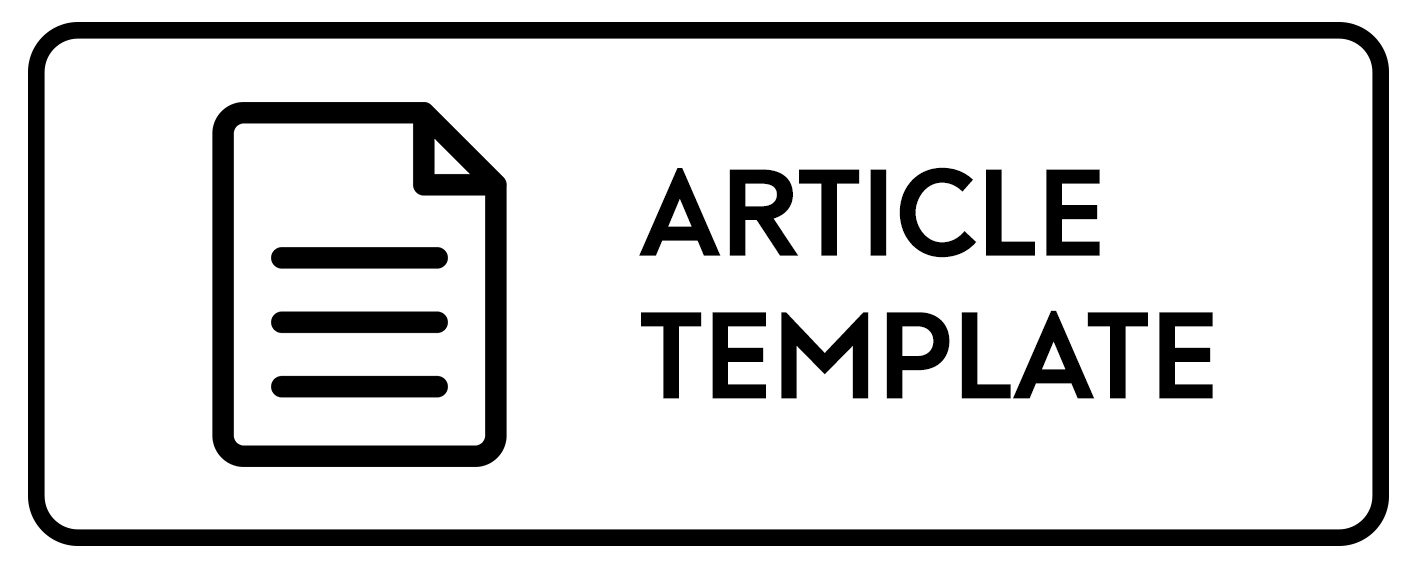Analisis Language Game terhadap Penggunaan Istilah 4 Pilar Majelis Permusyawaratan Rakyat Republik Indonesia
Abstract
Penelitian ini bertujuan untuk menganalisis penggunaan istilah 4 Pilar MPR RI yang terdiri atas Pancasila, UUD 1945, NKRI, dan Bhinneka Tunggal Ika. Penggunaan istilah 4 Pilar MPR RI mulai populer sejak MPR RI melakukan sosialisasi program 4 Pilar MPR RI ke berbagai elemen masyarakat dan akademisi. Istilah 4 Pilar MPR RI mulai diperkenalkan oleh MPR RI sejak tahun 2009 sebagai salah satu bentuk penamaan program kegiatan kebangsaan. Namun, istilah ini menjadi polemik di masyarakat dan akademik karena penggunaan istilah 4 pilar MPR RI tidak lazim untuk menyebut Pancasila, UUD 1945, NKRI, dan Bhinneka Tunggal Ika sebagai kategori varian yang sama disebut pilar. Penelitian ini merupakan bagian dari penelitian disertasi yang mengkritisi dan menganalisis terkait problem istilah dan makna bahasa dalam 4 Pilar MPR RI secara filsafati dengan kerangka teori language game Wittgenstein. Data penelitian ini diperoleh melalui kajian pustaka. Metode yang digunakan dalam penelitian ini menggunakan metode analisis verstehen dan interpretasi bahasa untuk mengungkap latar belakang dan problematika penggunaan istilah 4 Pilar MPR RI. Hasil penelitian ini menunjukkan bahwa penggunaan istilah 4 Pilar MPR RI telah menyebabkan distorsi pemaknaan atas Pancasila, UUD 1945, NKRI, dan Bhinneka Tunggal Ika dan istilah ini tidak mengikuti permainan bahasa yang baik dan benar.
This study aims to analyze the use of the terms 4 MPR RI Pillars which consist of Pancasila, the 1945 Constitution, the Republic of Indonesia, and Unity in Diversity. The use of the term 4 The MPR RI pillar began to be popular since the People's Consultative Assembly of the Republic of Indonesia (MPR RI) disseminated the 4 MPR RI Pillars program to various elements of society and academia. The term 4 MPR RI Pillars began to be introduced by the MPR RI since 2009 as one form of naming the national activities program. However, this term is a polemic in society and academics because the use of the terms of the 4 pillars of the MPR RI is not unusual to refer to Pancasila, the 1945 Constitution, NKRI, and Bhinneka Tunggal Ika as the same variant category called pillars. This research is part of a dissertation research that criticizes and analyzes the problems of language terms and meanings in 4 MPR RI Pillars philosophically with the Wittgenstein theory of language game framework. The data of this study were obtained through literature review. The method used in this study uses verstehen analysis methods and language interpretation to uncover the background and problematic use of the term 4 MPR RI Pillars. The results of this study indicate that the use of the term 4 MPR RI Pillar has caused a distortion of the meaning of Pancasila, the 1945 Constitution, NKRI, and Bhinneka Tunggal Ika and this term does not follow the game of good and correct language.
Keywords
Full Text:
PDF (Bahasa Indonesia)References
Baldwin, T. (2006). Philosophy of Language in the Twentieth Century. In E. Lepore & B. Smith, The Oxford Handbook of Philosophy of Language. Oxford: Clarendon Press.
Basman. (2009). Filsafat Ilmu sebuah Pengantar, Yogyakarta: Gusepa.
Chaer, A. (2015). Filsafat Bahasa. Jakarta: Rineka Cipta.
Christman, J. (2002). Social and Political Philosophy a Contemporary Introduction. London: Routledge.
Endarmoko, E. (2015, Juli). Proses. Kompas, hal. 11.
Hardjono. (2009, Juni). Amandemen UUD 1945 Tak Memiliki Legitimasi Filosofis. Kedaulatan Rakyat.
Hastangka. (2018). Tinjauan Filosofis Atas Empat Pilar Kehidupan Berbangsa dan Bernegara dan Implikasinya Terhadap Pemahaman Pancasila. Disertasi. Fakultas Filsafat UGM.
Hirsch, E. (1982). The Politics of Theories of Interpretation. Critical Inquiry, 9(1), 235-247. Retrieved from http://www.jstor.org/stable/1343282
Jolley, N. (2006). Metaphysics. In D. Rutherford, The Cambridge Companion to Early Modern Philosophy. London: Cambridge University Press.
Kaelan. (2012). Problem Epistemologis Empat Pilar Berbangsa dan Bernegara. Yogyakarta: Paradigma.
Kaelan. (2017). Filsafat Bahasa Hakikat dan Realitas Bahasa. Yogyakarta: Paradigma.
Khoyin, M. (2013). Filsafat Bahasa. Bandung: Pustaka Setia.
Kiemas, T. (2013). “Empat Pilar Kehidupan Berbangsa dan Bernegara sebagai Sumber Moralitas dan Hukum Nasional” Pidato Ilmiah Penganugerahan Gelar Doctor Honoris Causa. Jakarta: Universitas Trisakti.
Mahsun. (2017). Metode Penelitian Bahasa Tahapan, Strategi, Metode, dan Tekniknya. Depok: Rajagrafindo Persada.
Majalah Majelis Edisi No. 06/TH.V/Juni 2011.
Majalah Majelis Edisi No. 07/Th.V/Juli 2011.
Majalah Majelis Edisi No.01/TH.IX/Januari 2015.
Mardiwarsito. (1985). Kamus Jawa Kuna (Kawi) – Indonesia. NTT: Nusa Indah.
Mustansyir, R. (2007). Filsafat Analitik Sejarah, Perkembangan, dan Peranan Para Tokohnya. Yogyakarta: Pustaka Pelajar.
Poespoprodjo. (1987). Interpretasi. Bandung: Remadja Karya.
Prawiroatmodjo, S. (1957). Bausastra Jawa-Indonesia. Jilid I. Jakarta: Masagung.
Putusan Mahkamah Konstitusi RI Nomor 100/PUU-XI/2013.
Ross, W. D. (1972). The Works of Aristotle Volume VIII Metaphysica. London: Oxford University Press.
Rutherford, D. (2006). The Cambridge Companion Early Modern Philosophy. London: Cambridge University Press.
Sartini, N. (2017). Permainan Bunyi Bahasa dalam Media Sosial. Tutur: Cakrawala Kajian Bahasa-Bahasa Nusantara, 3(2), 188-196. Retrieved from http://tutur.apbl.org/index.php/tutur/article/view/66
Stecker, R. (1994). Art Interpretation. The Journal of Aesthetics and Art Criticism, 52(2), 193-206. DOI: http://doi.org/10.2307/431166
T. H. H. (1936). On the Subject of Interpretation. The Compass,17(7), 5-6. Retrieved from http://www.jstor.org/stable/23706301
Undang-Undang Dasar 1945.
Undang-Undang Nomor 2 Tahun 2011 tentang Perubahan Atas Undang-Undang Nomor 2 Tahun 2008 tentang Partai Politik.
Weerasekara, R.A.D.P. (2014). A Study on Ludwig Wittgenstein’s Concept of Language Games and the Private Language Argument. Sabaragamuwa University Journal, 12(1), 83–95. DOI: http://doi.org/10.4038/suslj.v12i1.7025
DOI: http://dx.doi.org/10.30872/calls.v5i1.1695
Copyright (c) 2019 Hastangka Hastangka, Armaidy Armawi, Kaelan Kaelan

This work is licensed under a Creative Commons Attribution-ShareAlike 4.0 International License.
Editorial address:
Fakultas Ilmu Budaya, Universitas Mulawarman
Address: Jl. Ki Hajar Dewantara, Gunung Kelua, Kec. Samarinda Ulu, Kota Samarinda, Kalimantan Timur, Indonesia 75123
Email: jurnalcalls@fib.unmul.ac.id
Website: http://e-journals.unmul.ac.id/index.php/CALLS

CaLLs: Journal of Culture, Arts, Literature, and Linguistics site is licensed under a Creative Commons Attribution-ShareAlike 4.0 International License
CaLLs: Journal of Culture, Arts, Literature, and Linguistics indexing by:














